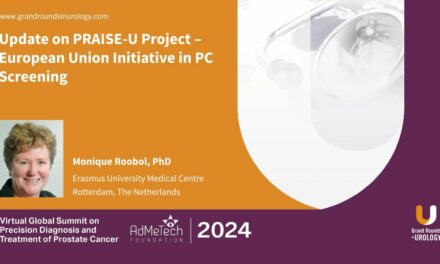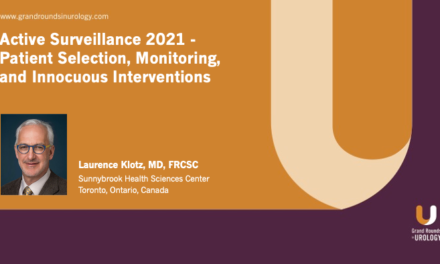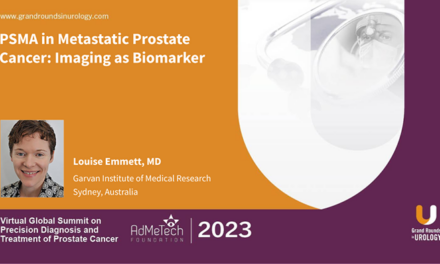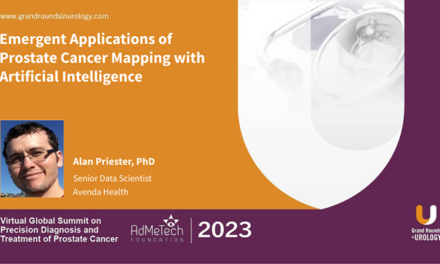M. Scott Lucia, MD, presented “Pathologist’s Perspective on Biopsy Results: Transperineal Mapping vs. Fusion Biopsy ” during the 25th Annual Southwest Prostate Cancer Symposium conference on December 9, 2021, in Scottsdale, Arizona.
How to cite: Lucia, M. Scott. “Pathologist’s Perspective on Biopsy Results: Transperineal Mapping vs. Fusion Biopsy.” December 2021. Accessed Nov 2025. https://grandroundsinurology.com/pathologists-perspective-on-biopsy-results-transperineal-mapping-vs-fusion-biopsy/
Pathologist’s Perspective on Biopsy Results: Transperineal Mapping vs. Fusion Biopsy
M. Scott Lucia, MD, Professor and Vice-Chair of the Department of Pathology and Director of Anatomic Pathology of the Prostate Diagnostic Laboratory at the University of Colorado Anschutz Medical Campus (CAMC) School of Medicine, compares transperineal mapping and MRI-targeted fusion biopsy to systematic biopsy for identifying prostate cancer. He explains that there is overwhelming data indicating that 12-core systematic biopsy is only about 50-65% accurate. Dr. Lucia also notes that TRUS-guided transrectal biopsy is inaccurate, often missing and under-grading significant tumors. He then introduces transperineal template-guided mapping biopsies (TTMB) as a potentially superior alternative, explaining that the PROMIS Trial demonstrated that template biopsy consistently outperforms systematic biopsy and also highlighting that template biopsy has greater concordance with results from prostatectomy. Dr. Lucia says that another option is MRI-targeted fusion biopsy, which the PRECISION trial found to have more accurate detection than systematic biopsy. He also notes that the combination of fusion biopsy and systematic biopsy performs better than either one alone. Dr. Lucia then poses the question of whether MRI-targeted fusion biopsy or TTMB is superior, and he considers data on this from several studies. He concludes: that traditional transrectal biopsy schemes are inaccurate for identifying significant cancer; that TTMB and MRI-guided targeted biopsy offer improved pathological accuracy over TRUS-guided biopsy; that TTMB offer improved pathological accuracy over MRI-fusion biopsies; and that combined systematic biopsy and MRI-guided biopsy is useful for determining eligibility for focal therapy.
About the 25th Annual Southwest Prostate Cancer Symposium:
Presented by Program Chairs Nelson N. Stone, MD, and Richard G. Stock, MD, this conference educated attendees about advances in the management of localized and advanced prostate cancer, with a focus on imaging, technology, and training in the related devices. It included a scientific session, as well as live demonstrations of surgical techniques. You can learn more about the conference here.
ABOUT THE AUTHOR
M. Scott Lucia, MD, is a Professor and Vice Chair of the Department of Pathology, the Chief of Genitourinary and Renal Pathology, and the Director of Research Histology at the University of Colorado Anschutz Medical Campus School of Medicine in Aurora, Colorado. He also serves as the Director of the Pathology Shared Resource at the University of Colorado Cancer Center.





